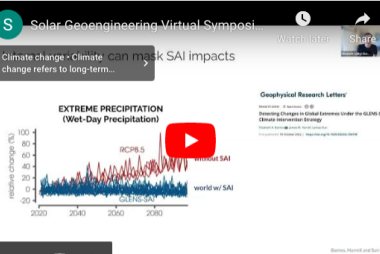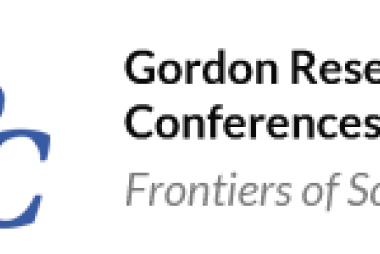Partner Event - RFF SRM Social Science Workshop: Cooperative vs. Non-Cooperative Interventions
For several years, Resources for the Future (RFF) has sought to improve understanding of the social and economic dimensions of solar
radiation modification (SRM) as a potential contribution to broader efforts to reduce climate change risk. For more information on RFF’s ongoing work in this area, including sponsored international research, public workshops, blogs, and podcasts, click
here.
Building on previous successful workshops, RFF now invites individuals to present research at our
“2024 SRM Social Science Workshop: Cooperative vs. Non-Cooperative Interventions,” workshop
to be held September 19-20, 2024, in Washington, DC.
We encourage workshop presentation submissions that draw from a rich array of social science disciplines including political science,
economics, public policy, international affairs, sociology, anthropology, philosophy and ethics, and more. Applications from researchers or research teams from the Global South are encouraged. Proposals from graduate students, in addition to established researchers,
are also welcome.
We are particularly interested in presentation proposals that may fall under two broad themes: (1) internationally cooperative efforts
on SRM, and (2) the risks and implications of non-cooperative SRM development or deployment. A non-exhaustive list of sample topics includes:
Cooperative SRM efforts:
- SRM in the larger climate change policy portfolio (with mitigation, CDR and adaptation), and challenges for design;
- The moral hazard risk as both a bottom-up individual behavioral phenomenon, as well as top-down political and policy challenge;
- Analyses of current global policies, political developments, or emerging norms on SRM;
- Surveys of public attitudes or media coverage on SRM; or
- Experimental evidence of behavioral aspects of SRM support.
Non-cooperative deployment risks and implications:
- International security and other implications and challenges of near-term, non-cooperative deployments;
- Governance proposals and/or institutional design, e.g., promoting international cooperation and effective governance to detect and monitor a potential unilateral deployment, or prevent such a deployment from happening, or
- Integrating social science considerations into the next generation of climate scenario development and climate models
Some travel support is available for accepted presenters who may need such funding. If this applies, please indicate so in your
application.
To submit your presentation proposal, click here.
Proposal submissions are due by May 24, 2024. Each proposal will be reviewed by an interdisciplinary team of experts on the workshop organizing committee. We expect to finalize the agenda in late spring/early summer.
Please contact Tyler Felgenhauer (tyler.felgenhauer@duke.edu) or Kristin Hayes (hayes@rff.org) with any questions. Please share and advertise this call within your networks.









